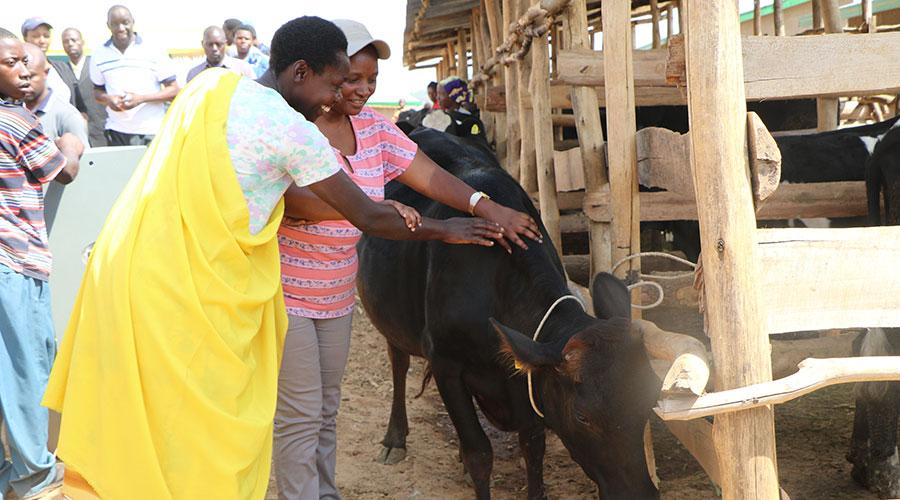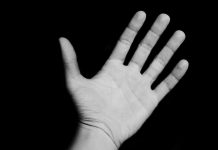Africa-Press – Rwanda. Stakeholders are tying up loose ends to ensure that new and clearer Ubudehe categories, devoid of any errors, are activated by December this year, The New Times can reveal.
Ubudehe is a social stratification programme depending on income among households.
The new five categories are represented by letters A, B, C, D, and E; with A consisting of households with the highest income, while E consists of those who are the most vulnerable in the society.
Speaking exclusively to this publication, the Director-General of Community Development and Social Affairs, Huss Monique said that the categorisation is now complete but stakeholders are doing everything possible to ensure that the categories that are presented to the millions of Rwandans are devoid of the errors that have constantly been raised in the current ones
“The process to classify is complete. I think that by the time of Umushyikirano in December this year, these categories will be ready for activation. We are only ensuring that what we deliver is clearer and better than the current categories,” she said.
She said that to do that, the stakeholders are working on guidelines that will carry these categories specifying which category gets what and when.
The guidelines will be signed by the minister of local government as stipulated by a recent cabinet meeting.
Value of guidelines
In a telephone interview, the Director-General of Local Administrative Entities Development Agency (LODA), Claudine Marie-Solange Nyinawagaga, said that although 40 percent of the households were not classified by December last year, the exercise is now complete.
“Lockdowns in December and January slowed us down a little but as of today, 99 percent of all homes have been classified except for new households that may be coming up right now,” she said.
She pointed out that the new categories will be made public alongside the new ministerial guidelines which the government hopes will make service delivery faster, easier and better.
“We didn’t have such guidelines before. Before we were relying on different policy documents to deliver services. The Ministerial guidelines will be more specific on the exact policy document to use where necessary,” she said.
Nyinawagaga explained that these guidelines will provide answers to questions and complaints raised by the masses.
They will also be clear on the processes an NGO, religion or Civil Society Organisation must follow to provide support to a particular category of Ubudehe.
Look out for unfairness
Nyinawagaga called on the masses to ensure that malpractices like bribery are avoided so that those that need genuine support get it in a timely manner.
“When someone pays a bribe to put them in a particular category because they want to benefit from Mutuelle de Sante community health insurance, they are directly playing a role in victimising the people who were genuinely supposed to benefit from these programs,” she said.
In another recent interview with this publication, Nyinawagaga said that some services, especially university scholarships, were linked to Ubudehe categories, and blamed that for malpractices in the categorisation and implementation process.
“There were cases where some people with financial means were scrambling to be put in the first and second Ubudehe categories to be able to benefit from services that were preserved for those with the least means,” he said, pointing out that the issue sparked off a debate whereby Rwandans suggested a review of the classification.
She indicated that apart from social protection for the most vulnerable so as to break the cycle of poverty, no other services will be provided based on Ubudehe categories.
She indicated that apart from social protection for the most vulnerable so as to break the cycle of poverty, no other services will be provided based on Ubudehe categories.
“Services such as university scholarships or costly medical services such as dialysis for kidney disease should not be offered based on Ubudehe categories,” she said.
She said that these services will be provided to those that deserve, and not based on which category under Ubudehe in which they fall.
The social protection interventions include Girinka – one cow per poor family – programme, direct support consisting of handouts to the most vulnerable people (who are old), and Vision Umurenge Programme (VUP) public works where people get wages for work.
Category A
It consists of households that are considered well-off.
Those include families with an aggregated income of more than Rwf600, 000 per month from various sources such as salaries or pension benefits, or other income-generating activities.
Also in this category are households with over 10 hectares of land in the rural areas, and more than one-hectare plot in urban centres, or carry out livestock farming activities that enables them to get the above-mentioned income.
Category B
This category comprises households that earn between Rwf65, 000 and Rwf600, 000 monthly from similar sources as those cited above. For land, they should own between one and 10 hectares for rural areas, or between 300 square metres and one hectare in cities.
Category C
It consists of households that make an aggregated income of between Rwf45, 000 and Rwf65, 000 per month. Their land ownership ranges from 0.5 hectare to one hectare in rural areas, or 100 square metres to 300 square metres in urban areas.
Category D
This category is for households that earn less than Rwf45, 000 a month (casual workers). Their land is less than half a hectare in the rural areas, and less than 100 square metres in urban areas.
Category E
This is a special category comprising people out of the labour force as a result of age, major disabilities or incurable diseases, yet they do not own other assets or other sources of livelihoods.
Those found in this category include those where the head of household and their spouse is at least 65 years old and have no source of income to provide for the family.
Ubudehe categories are revised every three years, and cover more than 2.7 million households.






